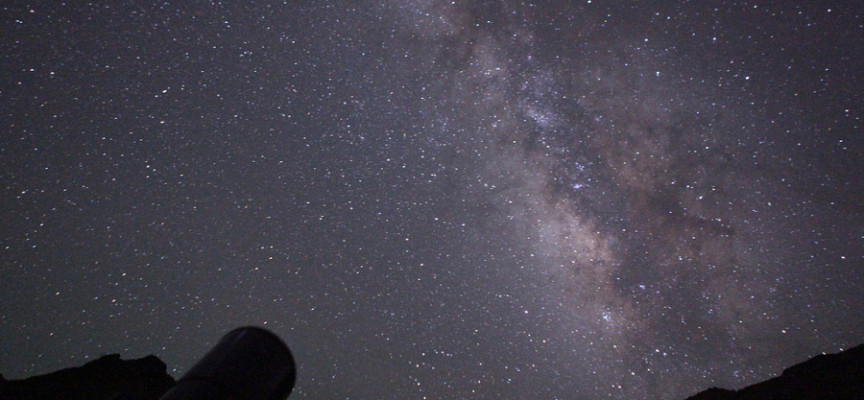Their numbers few, their passion immense – an accurate description of astronomy and star gazing enthusiasts in Pakistan! These crazy enthusiasts will travel miles to low light and less populated places, wait weeks to catch the perfect clear night and spend hours calibrating telescopes for perfect vision. It doesn’t end here. After star-gazing they will spend significant time recording observations for relevant databases like the IMO (International Meteor Organization). The first question of wonder is what is gained from watching the silent sky in the first place?
Why Astronomy?
Who said the sky is silent? It speaks history and stories of centuries! When looking at the moon alone, you are appreciating a heavenly object which has been around for more than 4 billion years! A true enthusiast, Zain Ahmed, who has been star-gazing in Pakistan for 10 years, describes his passion,
“The night sky is a time-machine – when you look at it, you’re looking into the past. When you look skywards from an unpolluted place, as much as 2.3 million year old photons travel zillions of miles to enter your unaided eye!”
Connecting with history and ancestry through astronomy is just one part. A spectacular meteor-shower, darkening lunar eclipse, and breath-taking full moon are other aspects of star-gazing that bring one closer to spirituality. A limitless sky makes one ponder over how huge the universe is and his/her minute existence within it, and also makes one appreciate God’s scheme of things!
Star-gazing for Pakistanis is more than just a hobby. It’s a refreshing way of discovering suburban quietness and jogging their patience for skillful problem solving. Not to mention the fact that sky parties and speaker sessions conducted often by NGOs like Pakistan Astronomers Society, Karachi Amateur Astronomers Society and Khwarizmi are excellent socializing opportunities.
Where to Star-gaze?
When we appreciate the beauty and usefulness of plunging into a borderless sky, the next question that arises is where it can be done! Simply walk up to your roof in the pleasant night time and star-gaze with your naked eye. For serious observation though, moving away from the lighted city into a quieter and pollution free zone is necessary. A few places excellent for star-gazing in Pakistan are:
- Hingol National Park: It is the largest National Park in Pakistan, lying on the Makran coast approximately 190 km from Karachi.
- Lake Kalri: Also known as Kinjhar Dhand, this lake is located in Thatta, Sindh and is the largest freshwater lake in Pakistan.
- Sonmiani: This is a coastal town in the southeast of the Balochistan province in Pakistan, notable for its space research and development.
- Gorakh Hill Station: Located in interior Sindh, this is a high hill station stretching over 2300 acres and a special adventure point for nature lovers.
- Bedro Jabal: Barren and vast, this is another hill station located in interior Sindh at a height of 3000 meters.
What to See?
Pakistanis are lucky to have fascinating celestial objects in clear vision from their land of space. From Karachi, Regulus is visible – a fast-spinning star which appears to be egg-shaped. Another space stop is the Orion Nebula, which is approximately 44 billion light years away from the earth, but easily visible to the unaided eye from a dark site! August 11th to 13th are favorable dates for Pakistanis to observe the Perseid Meteor Shower. Winters are a good time for star-gazing when one can catch the Gemenid Shower from a light and pollution free space.
Heavy and impressive star-gazing equipment is easily accessible to Pakistani star-gazing amateurs even online now. But for beginners, who would like to embrace the exploration of the heavens for inspiration and refreshment, just grab a pair of binoculars and wait for the mid-night sky to strike!
Happy Sky-Gazing!


Kumail is absolutely right the universe is 13.77 biilion years old so orion cant be 44 billion light years away it is 1,344 light years away from Earth.
Loved Ur Article .
please post more about astronomy in Pakistan
just to let know you Orion Nebula is not 44 billion light year away from us it is more or less 1300 light years away from us, it takes 1300 years for light from nebula to reach us. the whole universe is only 13 billion years old. so there is now way some thing is for beyond the universe.
I hope one of you two is right!
Very Nice!! Great Work. Keep it up!!!